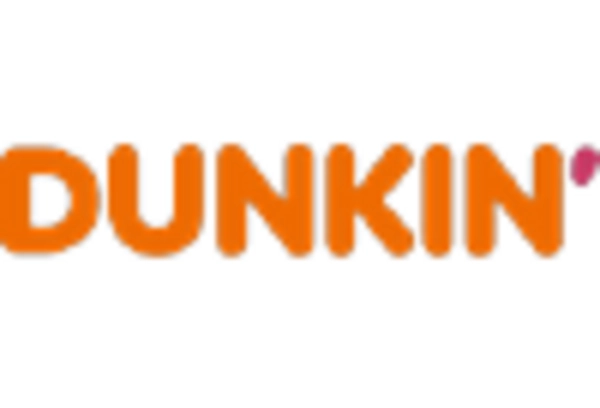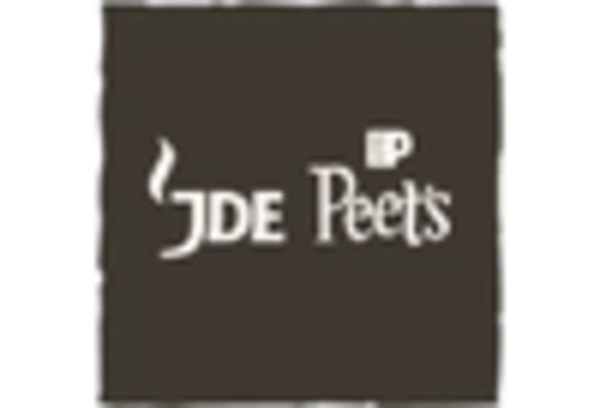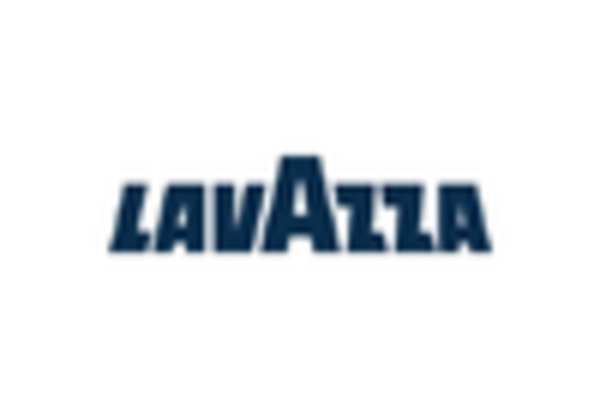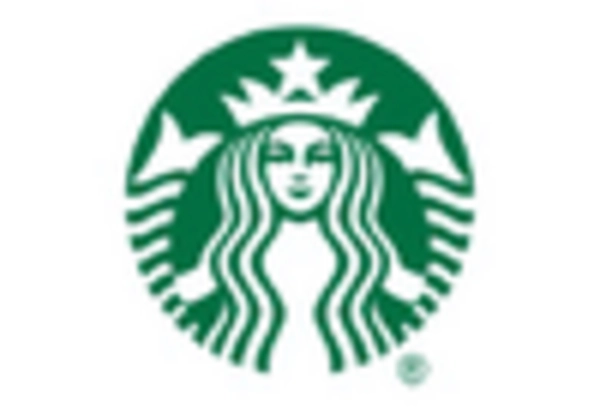Export Opportunities
Brazil remains a leading exporter in the coffee market, with significant opportunities for growth in international markets. In 2025, Brazil's coffee exports are projected to reach approximately 40 million 60 kg bags, accounting for nearly 30% of the world's coffee supply. The country's favorable climate and diverse coffee varieties position it well to meet the increasing global demand for high-quality coffee. Additionally, the Brazilian government has implemented various trade agreements aimed at enhancing export capabilities, which may further stimulate growth in the coffee market. As international consumers seek unique flavors and sustainable sourcing, Brazilian coffee producers are likely to benefit from these trends, potentially increasing their market share in key regions such as Europe and North America.
Rising Domestic Consumption
The coffee market in Brazil experiences a notable increase in domestic consumption, driven by a growing appreciation for specialty coffees and diverse brewing methods. Recent data indicates that coffee consumption in Brazil has risen by approximately 10% over the past year, reflecting a shift in consumer preferences towards higher quality and artisanal products. This trend is further supported by the increasing number of coffee shops and cafes that cater to a more discerning clientele. As consumers become more knowledgeable about coffee origins and brewing techniques, the demand for premium products is likely to continue its upward trajectory. This rising domestic consumption not only bolsters the coffee market but also encourages local producers to innovate and enhance their offerings, thereby contributing to the overall growth of the industry.
Sustainability and Ethical Sourcing
Sustainability initiatives are becoming increasingly important within the coffee market in Brazil, as consumers and producers alike prioritize ethical sourcing and environmental responsibility. The demand for sustainably sourced coffee has surged, with a reported 25% of Brazilian coffee now certified organic or fair trade. This shift is driven by a growing awareness of the environmental impact of coffee production and the desire for transparency in supply chains. Brazilian producers are responding by adopting more sustainable farming practices, such as agroforestry and reduced pesticide use, which not only benefit the environment but also enhance the quality of the coffee. As sustainability becomes a key differentiator in the coffee market, Brazilian producers who embrace these practices may find themselves better positioned to attract environmentally conscious consumers.
Technological Innovations in Production
Technological advancements play a crucial role in enhancing productivity and quality within the coffee market in Brazil. Innovations such as precision agriculture, automated processing, and advanced brewing techniques are being adopted by producers to optimize yields and improve flavor profiles. For instance, the use of drones for monitoring crop health and soil conditions has become increasingly prevalent, allowing farmers to make data-driven decisions. Furthermore, investments in processing technology have led to more efficient methods of coffee extraction and roasting, which can enhance the final product's quality. As these technologies continue to evolve, they are likely to provide Brazilian coffee producers with a competitive edge in both domestic and international markets, thereby positively impacting the coffee market.
Changing Demographics and Consumer Preferences
The coffee market in Brazil is influenced by changing demographics and evolving consumer preferences. Younger generations, particularly millennials and Gen Z, are driving a shift towards more diverse coffee experiences, including cold brews, nitro coffee, and flavored options. This demographic is also more inclined to seek out unique and artisanal coffee products, which has led to a proliferation of specialty coffee shops and roasteries across the country. Data suggests that approximately 60% of coffee consumers in Brazil are now under the age of 35, indicating a significant shift in the market landscape. As these younger consumers continue to shape the coffee market, traditional coffee brands may need to adapt their offerings to remain relevant and competitive.

















